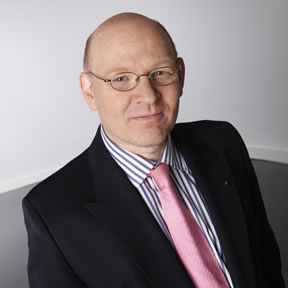Newman Centre’s St. Thomas Aquinas Church in Toronto has had its share of controversy. When I first attended Mass there in the late 1980s the sentiments of some of the students were almost hilariously anti-Church. There’s little as funny as privileged North American kids thinking they’re radical because they hurt mummy and daddy.
Matters have improved enormously since then, but recently a dozen “parishioners” have made a lot of noise about leaving the place because it’s too Catholic for them. The pastor, Fr. Chris Cauchi, merely allowed the group Courage to offer its services, and only after congregants struggling with homosexuality had asked for this to happen.
And here, of course, is the problem. There are some people who think there is no struggle involved, and that giving in to homosexual tendencies is fine and dandy, even to be applauded. Courage, on the other hand, offers gentle, empathetic and orthodox spiritual guidance, so that homosexual people can put their eternal well-being before their earthly temptations.
We all struggle with sin, whether it’s homosexual, heterosexual, or non-sexual. It’s a large part of what being human is about. For a Catholic it’s not supposed to be a matter of opinion, or a question of fashion, or an issue of how many homosexuals we know and like, or who has a gay son or a lesbian auntie. It’s nothing more and nothing less than fundamental Church teaching. The Catechism says it firmly but with compassion, and is worth quoting at length:
Basing itself on Sacred Scripture, which presents homosexual acts as acts of grave depravity, tradition has always declared that homosexual acts are intrinsically disordered. They are contrary to the natural law. They close the sexual act to the gift of life. They do not proceed from a genuine affective and sexual complementarity. Under no circumstance can they be approved.
The number of men and women who have deep-seated homosexual tendencies is not negligible. They do not choose their homosexual condition; for most of them it is a trial. This inclination, which is objectively disordered, constitutes for most of them a trial. They must be accepted with respect, compassion, and sensitivity. Every sign of unjust discrimination in their regard should be avoided. These persons are called to fulfill God’s will in their lives and, if they are Christians, to unite to the sacrifice of the Lord’s Cross the difficulties they may encounter from their condition. Homosexual persons are called to chastity.
I have no illusions here, and it must be extraordinarily difficult to spend one’s life with these challenges. Then again, the same sort of people who oppose Courage seem intent on enabling young people with even minimal same-sex attractions to lead the homosexual lifestyle, which indicates they care more about some sort of gay agenda than living a fully formed Catholic life.
This particular case is pretty much par for the course, in that the fact it was reported in the first place must mean that some of those offended wanted it to be made public. They also complained to the university officials, who asked the parish to withdraw the organization. The Newman Centre refused to do so, but emphasized on their website that Courage does not have university endorsement.
One has to wonder what sort of Catholic would report a Catholic church to a secular and often anti-Catholic university because that church offered parishioners solid Catholic teaching and help in crisis. Frankly, we probably know what sort of Catholic: the sort who had far too much influence in years past, still holds positions of power in Catholic education and a few other isolated areas, and longs for a time when their opinions and not Church theology rule the day.
Our position regarding homosexuality should never change—no compromise on love, no compromise on truth. I cannot see into the soul of another person, but I can’t help concluding that if sexual politics and personal attractions matter more than the teachings of Christ’s Church on earth, there is something terribly wrong. If it’s not His Church, why bother to listen?—and in that case leave. If it is, though, you need to pay very close attention indeed to what it says. Even at the University of Toronto.

